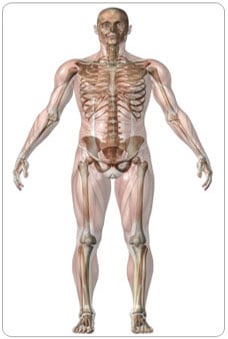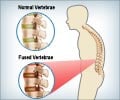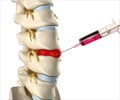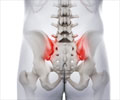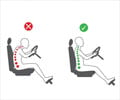Symptoms of Back Pain
Pain that interferes with sleep, weakness or numbness in one or both legs or groin area can mean nerve compression and requires thorough evaluation.
Problems with bladder or bowel control can also occur due to compression. Typically there is a continuous ache in the back that is not relieved by change of posture and is worse in the morning. Generally the person affected is unable to perform normal daily chores or housework. Bending to pick up something from the floor can be a painful task.
Back pain arises in many forms, it may be sudden and sharp or it may be dull and if persistent for more than a week, it might result in tension, soreness or stiffness of back muscles. Pain may aggravate with slightest of movement or even with coughing and sneezing. It may also be accompanied with numbness and tingling in the arms or legs. The pain distribution and pattern indicates its severity. The pain if limited to the back can be treated by simple remedies at home but if radiating to the lower abdomen, groin, leg or foot, needs medical attention.
Symptoms such as pins and needles sensation, numbness or a burning sensation across the leg or foot region are an indication of severity of pain and should not be left untreated. These symptoms might indicate damage to the root of the sciatic nerve, the nerve travels from the lower back down towards the back of the leg to the foot and enervates the long muscles of the leg and is responsible for the sensation of the leg and foot.
Category of Pain:
- Acute - if lasting up to six weeks
- Sub-acute - If lasting up to three months
- Chronic - If longer than three months
Warning Signs when medical help is required:
- Pain getting significantly worse
- Pain affecting every day activities
- Groin weakness or numbness
- Weakness or numbness in one or both the legs
- Arm or hand weakness
- Tingling, or numbness in arms radiating to fingers
- Loss of bowel or bladder control
- A fever (high temperature) accompanied with redness or swelling on back
- Constant pain, even at night
Factors that increase the risk of developing back pain include:
- Smoking
- Obesity
- Older age
- Being a female
- Physically strenuous work
- Sedentary work
- Physically or mentally stressful job
- Anxiety
- Depression
Although the back pain often gets triggered suddenly but the causes may have been piling up for quiete some time owing to:
- Maintaining slouched posture in chairs
- Driving in a hunched position
- Standing in an arched manner
- Lifting without bending knees
- Sleeping on sagging mattress
- Being unfit
- Sleeping prone
- Getting out of the bed straight from supine lying position
Chronic back pain and Disability –Back pain is a common reason for seeking disability benefit from governments and insurance companies. However as pain is subjective and difficult to quantify, the process for such claims is tedious and not everyone who makes a claim gets the necessary benefit. Even the most genuine of cases are liable for rejection, The fear accompanying back pain can sometimes leads to prolonged inactivity and can make the backache worse and make it a chronic condition. This can lead to work-loss and may push a person to seek disability allowance.
The physiotherapist should ensure that the ‘fear factor’ of back pain should not let a person from stop performing their daily chores. The general advise therefore is that people suffering from low back ache should NOT avoid their daily activities or exercises and should keep performing these with some necessary precautions.


